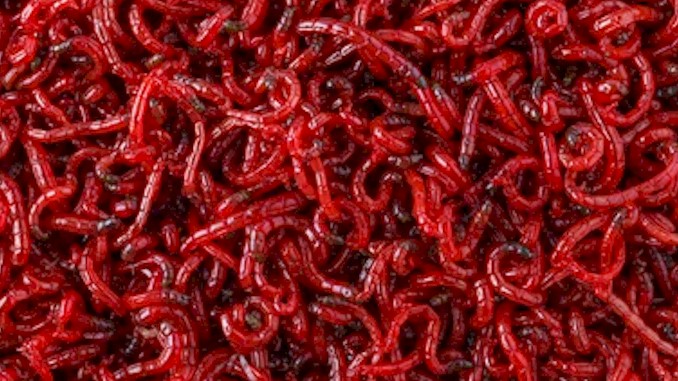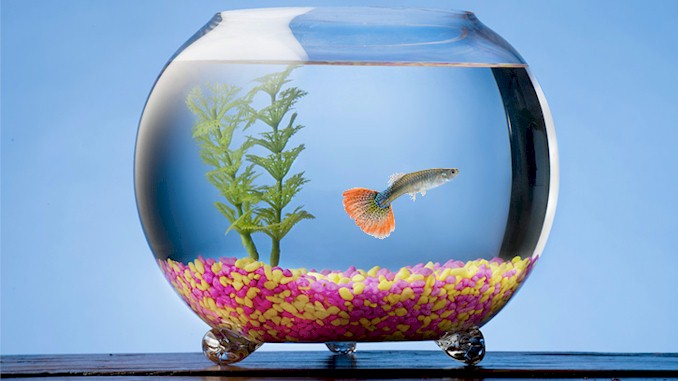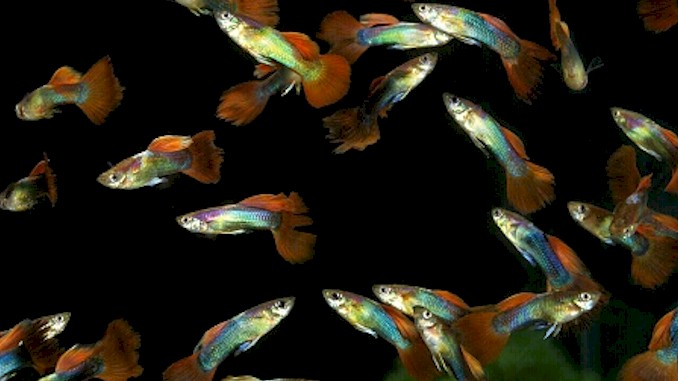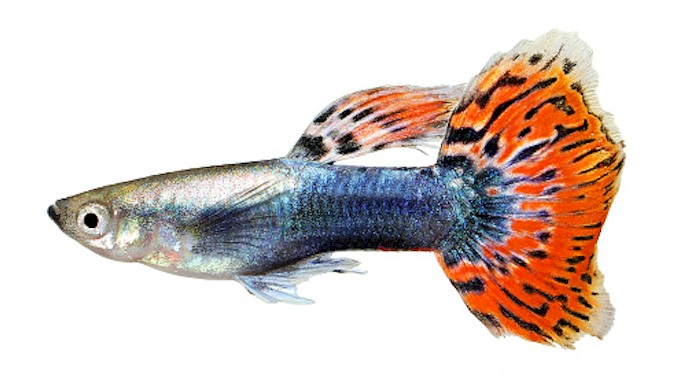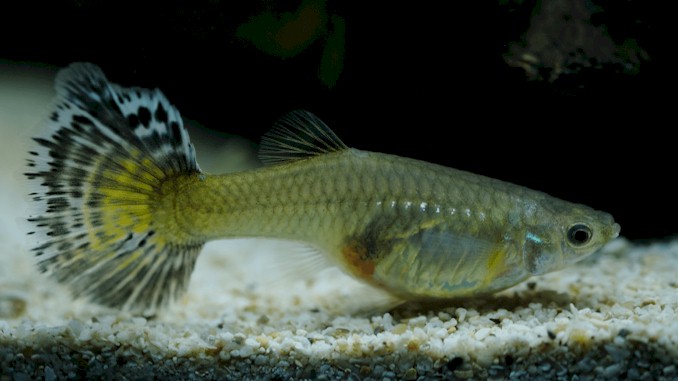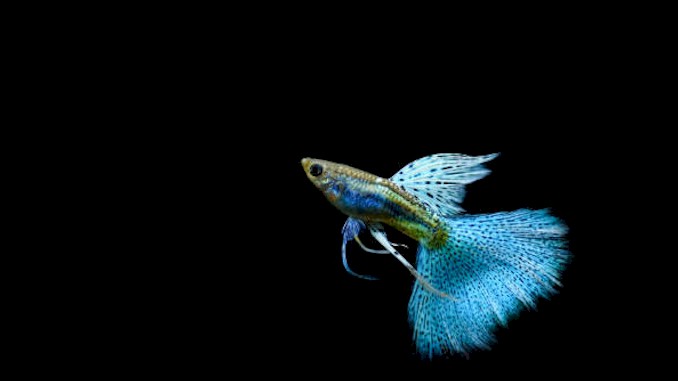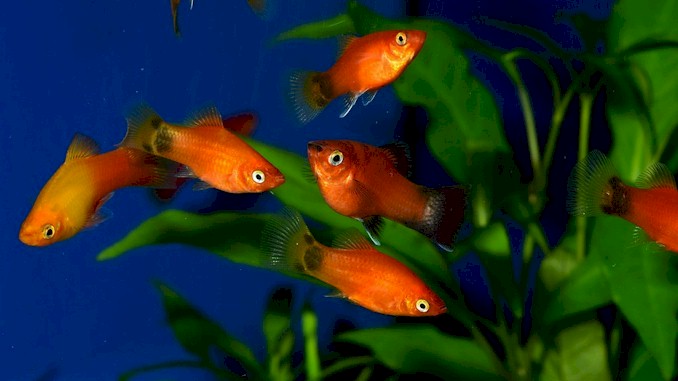The Ultimate Guide To Feeding Bloodworms To Your Guppies
As an expert in the field of fishkeeping, I have received countless inquiries about what types of food are appropriate for guppies. One question that comes up often is whether or not guppies can eat bloodworms. Having studied and cared for guppies extensively, I can confidently say that bloodworms can indeed be a beneficial addition to a guppy’s diet. However, it is important to understand the nuances of feeding guppies bloodworms in order to ensure their health and longevity. In this comprehensive guide, I will share my knowledge and experience on the topic, providing you with all the information you need to make an informed decision about whether or not to include bloodworms in your guppy’s diet.
Guppies can eat bloodworms as they are a nutritious source of protein, vitamins, and minerals. However, it is important to feed them in moderation and avoid overfeeding. Bloodworms should be given as a treat and not as a replacement for a balanced diet. Additionally, it is recommended to purchase high-quality, freeze-dried bloodworms to minimize the risk of disease transmission.
However, there is much more to learn about feeding guppies bloodworms than just the basics. In the following sections, we will dive deeper into the benefits and risks associated with feeding guppies bloodworms, as well as the best ways to prepare and serve them. You’ll also discover some common mistakes to avoid when feeding bloodworms to guppies, and gain a better understanding of how often to offer them as a treat. So, whether you’re a seasoned guppy owner or just starting out, keep reading to learn more about this fascinating topic!
Are Bloodworms Good for Guppies? – Exploring the Nutritional Benefits of Bloodworms for Guppies
When it comes to feeding guppies, it is important to provide them with a balanced diet that meets their nutritional requirements. Bloodworms can be a great addition to their diet as they are a nutritious source of protein, vitamins, and minerals. These small, red larvae of the midge fly are high in protein, containing up to 50% protein content, making them an excellent food source for guppies.
Guppies are omnivores, meaning they require both plant and animal-based foods to meet their dietary needs. Bloodworms are an excellent source of animal-based protein, which is essential for the growth and maintenance of their muscles, tissues, and organs. Additionally, bloodworms are rich in vitamins and minerals, such as iron, which are important for maintaining a healthy immune system and preventing anemia.
It is worth noting that while bloodworms are a good source of nutrition for guppies, they should not be the sole component of their diet. A balanced diet for guppies should consist of a variety of foods, including quality flakes or pellets, fresh or frozen vegetables, and occasional treats such as bloodworms.
Furthermore, it is important to consider the quality of the bloodworms being fed to guppies. Fresh or live bloodworms may carry the risk of transmitting parasites or diseases to guppies. Therefore, it is recommended to use high-quality, freeze-dried bloodworms to minimize the risk of disease transmission and ensure a safe and healthy food source for your guppies.
Now you have learned that bloodworms are a nutritious food source for guppies that can provide a range of health benefits, including protein, vitamins, and minerals. However, it is important to feed bloodworms in moderation and as part of a balanced diet that includes a variety of foods. Choosing high-quality, freeze-dried bloodworms can also help ensure the safety and health of your guppies.
Do Guppy Fish Like Eating Bloodworms? – Understanding Guppies’ Food Preferences
Guppies are known for being opportunistic feeders, which means they will eat almost anything offered to them. However, this does not necessarily mean they enjoy all types of food equally. When it comes to bloodworms, guppies have been observed to exhibit a strong preference for them, often showing excitement and enthusiasm when presented with this food.
One reason for this preference may be due to the high protein content of bloodworms, which is essential for their growth and development. Additionally, bloodworms have a high fat content, which can make them more appealing to guppies as they have a natural craving for fatty foods.
However, it is important to note that not all guppies will necessarily have the same preference for bloodworms. Like humans, each guppy may have its unique tastes and preferences when it comes to food. Some guppies may prefer flakes or pellets over bloodworms, while others may have a strong preference for live or frozen bloodworms.
It is recommended to observe your guppies’ behavior and eating habits to determine their preferences. Additionally, providing a variety of food options can help ensure that they receive a balanced diet while also catering to their individual tastes.
So, guppies do enjoy eating bloodworms, and they can be a beneficial addition to their diet. However, each guppy may have its preferences, and it is essential to observe their eating habits and provide a balanced diet that includes a variety of food options.
How Often Should I Give My Guppies Bloodworms? – Finding the Right Balance
While bloodworms can be a nutritious and enjoyable addition to a guppy’s diet, it is essential to find the right balance and avoid overfeeding them. Overfeeding can lead to obesity and other health issues, so it is crucial to understand how often to give your guppies bloodworms.
As a general rule of thumb, bloodworms should only make up a small portion of a guppy’s diet. It is recommended to feed them bloodworms once or twice a week, depending on their individual needs and preferences. Additionally, it is essential to provide a balanced diet that includes other food options such as flakes, pellets, and vegetables.
When deciding how often to feed your guppies bloodworms, it is also important to consider the type of bloodworms you are using. Live and frozen bloodworms are more nutritious than freeze-dried bloodworms, which have a lower nutritional value. If you are using freeze-dried bloodworms, you may need to feed them more frequently to ensure they are receiving enough nutrition.
It is also important to avoid feeding your guppies too many bloodworms at once, as this can cause digestive issues. It is recommended to feed them small amounts of bloodworms at a time, gradually increasing the amount over time.
As you can see, feeding your guppies bloodworms once or twice a week can be a healthy and enjoyable addition to their diet. However, it is essential to find the right balance and avoid overfeeding them. Providing a balanced diet that includes a variety of food options and observing their eating habits can help ensure their health and wellbeing.
Which is the Best Option – Live, Freeze-Dried, or Frozen Bloodworms? – Comparing Different Bloodworm Types for Guppies
When it comes to feeding your guppies bloodworms, you have three main options: live, freeze-dried, or frozen. Each type of bloodworm has its own set of advantages and disadvantages, so it is essential to compare and contrast them to determine which is the best option for your guppies.
Live bloodworms are often considered the most nutritious option, as they are alive and full of energy and vitality. They are also more attractive to guppies because they move around, mimicking their natural prey. However, live bloodworms can be more expensive and harder to find than other types of bloodworms. They also require special care and attention to keep them alive and healthy.
Frozen bloodworms are another popular option, and they are widely available at most pet stores. Frozen bloodworms are more convenient than live bloodworms and can be stored for long periods, making them a more cost-effective option. However, frozen bloodworms can lose some of their nutritional value during the freezing process.
Freeze-dried bloodworms are the most convenient option, as they can be stored for long periods and do not require any special care. They are also widely available and relatively inexpensive. However, freeze-dried bloodworms have a lower nutritional value than live or frozen bloodworms, and some guppies may not find them as appealing.
When deciding which type of bloodworm to feed your guppies, it is important to consider their individual needs and preferences. Live bloodworms may be the best option for guppies who need extra nutrition, while freeze-dried bloodworms may be more suitable for those who have more specific dietary needs. Frozen bloodworms may be a good compromise between the two, providing a good balance of nutrition and convenience.
| Type of Bloodworm | Pros | Cons |
|---|---|---|
| Live | High Nutritional Value, Stimulates Natural Hunting Instincts, Long Shelf Life | Risk of Parasites and Diseases, Messy to Store and Feed, Difficult to Measure Exact Portions |
| Freeze-Dried | Long Shelf Life, Convenient to Store and Feed, Easy to Measure Exact Portions | Low Nutritional Value, Can be Expensive, May Contain Preservatives |
| Frozen | High Nutritional Value, Convenient to Store and Feed, Easy to Measure Exact Portions | Requires Freezer Storage, Thawing Process Can be Time-Consuming, Risk of Parasites and Diseases |
To sum up, each type of bloodworm has its own advantages and disadvantages, and the best option depends on your guppies’ individual needs and preferences. By comparing and contrasting the different types of bloodworms, you can make an informed decision and provide your guppies with the best possible diet.
Can Guppies Get Sick from Eating Bloodworms? – Examining the Risks and Precautions
Guppies are generally hardy fish that can tolerate a wide range of diets, but it is essential to monitor their eating habits to ensure they stay healthy. While bloodworms are a great source of nutrition for guppies, there are potential risks to be aware of. One of the primary risks associated with feeding bloodworms is overfeeding, which can lead to bloating, constipation, and even swim bladder disease. It is important to feed your guppies in moderation and to provide a balanced diet that includes other food sources.
Another risk to consider is the potential for bacterial and parasitic infections. Bloodworms are often harvested from stagnant or polluted water sources, and if not properly cleaned and handled, they can contain harmful bacteria and parasites. To minimize this risk, it is recommended to purchase bloodworms from a reputable source and to thoroughly rinse them before feeding them to your guppies.
It is also important to note that some guppies may be more sensitive to certain types of bloodworms. For example, some guppies may have difficulty digesting freeze-dried bloodworms, which can lead to digestive issues. In these cases, it may be better to offer live or frozen bloodworms instead.
Overall, while feeding bloodworms to your guppies can be beneficial, it is important to be aware of the potential risks and to take precautions to ensure your fish stay healthy. Providing a varied diet and monitoring your guppies’ eating habits can go a long way in keeping them happy and healthy.
Can Guppies Eat Only Bloodworms? – Discussing the Importance of a Balanced Diet for Guppies
While guppies can eat bloodworms, it is essential to keep in mind that a balanced diet is necessary for their overall health and well-being. Bloodworms should be part of a varied diet that includes other foods such as flakes, pellets, and vegetables.
Guppies are omnivores and require a balanced diet that contains both plant and animal-based foods to meet their nutritional needs. A diet solely consisting of bloodworms can lead to nutrient deficiencies and health problems such as constipation, bloating, and even swim bladder disease.
To ensure your guppies are getting a balanced diet, offer them a variety of foods. Flake and pellet foods provide essential nutrients and are a convenient option for everyday feeding. Vegetables such as spinach, zucchini, and peas can also be offered as a supplement to their diet.
It is essential to vary the types of food offered to guppies to prevent boredom and ensure they receive all the necessary nutrients. While bloodworms are a great addition to their diet, they should not be the sole food source for your guppies. By providing a balanced diet, you can ensure your guppies remain healthy and vibrant.
Can Guppy Fry Eat Bloodworms?
Yes, guppy fry can eat bloodworms. Bloodworms are an excellent source of protein, which is essential for the growth and development of guppy fry. However, it is important to offer small amounts of bloodworms to guppy fry, as overfeeding can lead to health problems.
When feeding bloodworms to guppy fry, it is recommended to use frozen or freeze-dried bloodworms instead of live bloodworms. Live bloodworms can be too large and difficult for guppy fry to consume, and they may also introduce harmful bacteria to the aquarium.
It is important to note that bloodworms should not be the sole food source for guppy fry. Guppy fry require a varied diet that includes small amounts of protein-rich foods like bloodworms, as well as vegetable matter and specially formulated fry foods.
Feeding guppy fry a balanced diet is crucial for their growth and development, and it is recommended to feed them small meals multiple times throughout the day. By offering a variety of foods and feeding them in appropriate amounts, you can help ensure that your guppy fry grow up healthy and strong.
How do you feed frozen bloodworms to guppies?
Feeding frozen bloodworms to guppies is a simple and easy process. Here are the steps to follow:
- Thaw the frozen bloodworms: Remove the desired amount of frozen bloodworms from the freezer and thaw them in a small container of aquarium water. It is important to use aquarium water rather than tap water, as tap water may contain chlorine and other harmful chemicals.
- Use a feeding tool: Once the bloodworms are thawed, use a feeding tool such as a pipette, turkey baster, or feeding ring to place the bloodworms into the aquarium. This will prevent the bloodworms from sinking to the bottom and potentially fouling the water.
- Feed small amounts: It is important to feed small amounts of bloodworms to guppies, as overfeeding can lead to health problems. Offer only as much as the guppies can consume in a few minutes, and remove any uneaten food to prevent it from polluting the aquarium.
- Feed as part of a balanced diet: Bloodworms should not be the only food source for guppies. They require a varied diet that includes a mix of protein-rich foods, vegetable matter, and specially formulated fish food. Be sure to offer a balanced diet to keep your guppies healthy and happy.
By following these steps, you can easily feed frozen bloodworms to your guppies and provide them with a nutritious and tasty treat.
What are common mistakes to avoid when feeding bloodworms to guppies
Here are some common mistakes to avoid when feeding bloodworms to guppies:
- Overfeeding: Guppies have small stomachs and can only eat small amounts at a time. Overfeeding can lead to health problems and dirty water.
- Feeding only bloodworms: While bloodworms are a good source of protein, guppies require a varied diet to stay healthy. Feeding only bloodworms can lead to nutritional deficiencies.
- Feeding low-quality bloodworms: Poor quality bloodworms may contain harmful bacteria or parasites that can make your guppies sick.
- Feeding unthawed frozen bloodworms: Frozen bloodworms must be thawed before feeding to avoid digestive problems in your guppies.
- Leaving uneaten food in the tank: Bloodworms that are not consumed can quickly decompose and pollute the water in your aquarium.
- Feeding live bloodworms without quarantine: Live bloodworms can carry diseases or parasites that can be harmful to your guppies. Always quarantine live food before feeding to your guppies.
To avoid common mistakes when feeding bloodworms to guppies, here are some tips:
- Feed in moderation: Overfeeding can lead to health problems and poor water quality, so it’s important to only offer bloodworms as a treat and not as a staple food.
- Choose the right type: Live, frozen, and freeze-dried bloodworms are all suitable for guppies, but it’s important to choose a high-quality source to avoid contamination and ensure proper nutrition.
- Thaw frozen bloodworms properly: Improperly thawed frozen bloodworms can lead to the release of harmful bacteria and parasites. Thaw them in a separate container of aquarium water before feeding.
- Remove uneaten food: Leaving uneaten bloodworms in the tank can lead to increased ammonia levels and poor water quality, so be sure to remove any leftovers within a few minutes of feeding.
- Avoid overstocking: Overcrowding the tank can lead to increased competition for food, which can cause stress and even aggression among guppies. Keep the tank adequately stocked to ensure that all fish have access to food.

